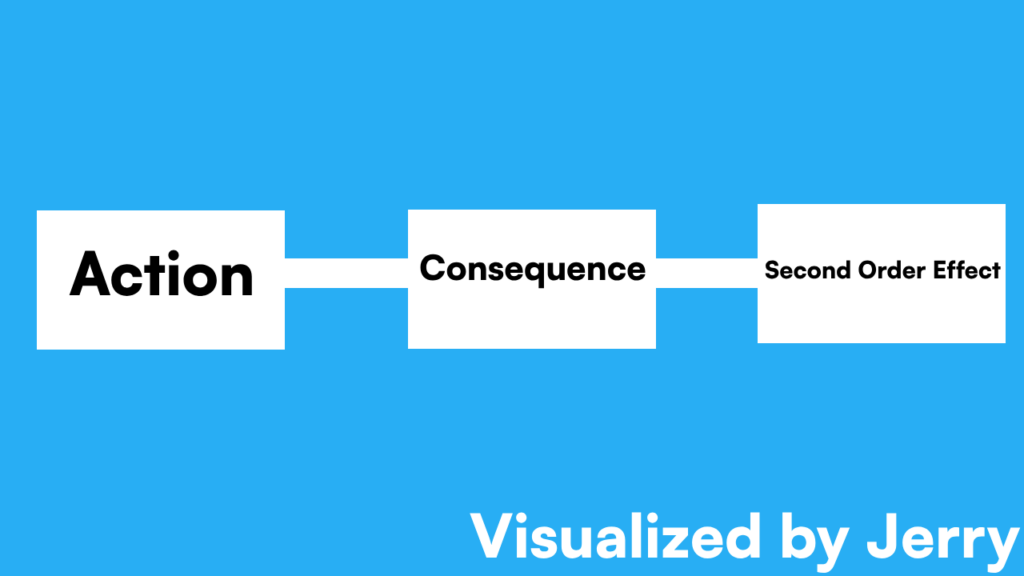“While we are free to choose our actions, we are not free to choose the consequences of our actions.”
Steven Covey
Greetings! Jerry Garrett here, and I’ve got a fresh post for you this week. Let’s dive into an MBA topic today: second-order effects. An example that paints a vivid picture will kick things off.
Located just off the east coast of Saudi Arabia is Bahrain, a tiny island kingdom. Despite its F1 track, pearl diving, and international banking prowess today, it once held a different reputation. There was a time when Bahrain was abundant in natural greenery, earning the nickname “Garden of Eden.” Imagine strolling through its verdant landscapes, savoring moments of peace. Bahrain has now become a barren desert, and the local plant life must be irrigated to survive. So what happened?
The greenery of Bahrain was dependent on underground freshwater springs. Oysters cultivated pearls as a result of these springs. As Manama, the largest city, grew, land reclamation took place—excavating dirt from the interior and depositing it on the coast to create new land. In spite of its original goal, this process had unintended consequences: the springs dried up and Bahrain became a desert.
Actions have consequences, whether good or bad, and those consequences have their own effects, known as second-order effects. One push starts a chain reaction that cannot be stopped or reversed.
As another example, after World War II, New York City implemented rent control to provide affordable housing for veterans who joined the army. It sounds noble, doesn’t it? However, the planners did not anticipate what was to come.
New York City’s property maintenance costs rose in order to keep properties in good shape. These costs couldn’t be covered by rent, and landlords were unable to raise the rent. How did they respond? Their decision to neglect the buildings was based on the fact that they were not worth the money it would take to maintain them.
There is always a second-order effect when something is tweaked in a complex system. The uncertainty surrounding our actions makes it difficult to predict their consequences – and those actions also have consequences.
Read the original one from Josh Kaufman here: https://personalmba.com/second-order-effects/
If you’re still puzzled by all this, take a look at the visual below. It sums up what you’ve learned today (unless you already know it).

And that’s it for today! I look forward to seeing you next week. Until next time!